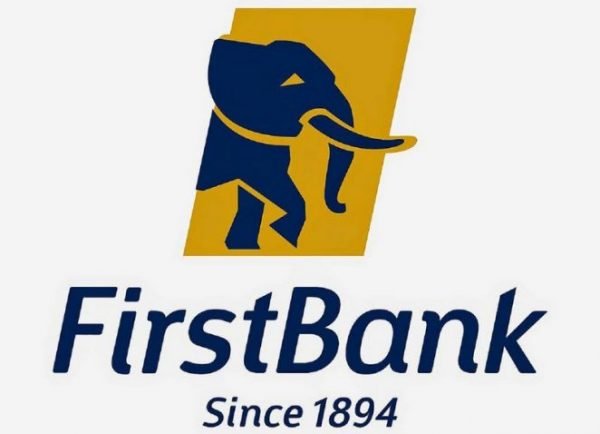BUSINESS
Zenith Bank Announces N765.6bn Gross Earnings for Q4 2021

Zenith Bank Plc has announced gross earnings of N765.6 billion for the third quarter (Q4), Dec. 31, 2021 compared with N696.5 billion achieved in the corresponding period in 2020.
In the banks audited financial results for 2021, presented to the Nigeria Exchange Group (NGX) on Monday, it said the 10 per cent growth was achieved despite a challenging macroeconomic environment aggravated by the coronavirus (COVID-19) pandemic.
The Group said the growth in gross earnings was achieved on the back of 23 per cent YoY growth in non-interest income from N251.
7 billion to N309 billion and a 2 per cent YoY growth in interest income from N420.8 billion to NGN427.6 billion.The profit before tax of the Group also grew by 10 per cent from N255.
9 billion to N280.4 billion in the review period.It said the increase was due to growth in the top-line and very strong management of the treasury portfolio that increased efficiency, resulting in a drop in interest expense by 12 per cent from N121.1 billion in 2020 to N106.8 billion in the year under review.
This further led to a seven per cent increase in net interest income of N320.8 billion in 2021 from N299.7 billion in 2020.
It also said customer deposits increased by 21 per cent, growing from N5.34 trillion in the previous year to N6.47 trillion in the year under review. It said the growth in customer deposits came from both corporate and retail customers.
Retail deposits grew by N146 billion from N1.72 trillion in 2020 to N1.87 trillion in 2021.
The Group’s continuous drive for retail deposits combined with the strategic rebalancing of its funding base helped to reduce the cost of funding from 2.1 per cent to 1.5 per cent in the current year.
Although operating expenses grew by 13 per cent YoY, growth remained below the inflation rate, and the Group improved its Earnings per Share (EPS), which grew by six per cent from N7.34 to N7.78.
Total assets increased by 11 per cent, growing from N8.48 trillion in 2020 to N9.45 trillion in 2021, mainly driven by growth in customer deposits.
Also, with the steady recovery in economic activities, the Group grew its gross loans by 20 per cent, from N2.9 trillion in 2020 to N3.5 trillion in 2021, with moderated NPL ratio from 4.29 per cent to 4.19 per cent YoY.
The Group recorded impressive liquidity and capital adequacy ratios of 71.6 per cent and 21.0 per cent, which remained above regulatory thresholds of 30 per cent and 15 per cent, respectively.
The group said In 2022, it intended to consolidate on the gains achieved in the previous year in all business segments and combine leadership in the industry, innovation and technology to drive improved performance and deliver enhanced returns to all stakeholders.
As a testament to its commitment to its shareholders, the bank has announced a proposed final dividend of N2.80 per share, bringing the total dividend to N3.10 per share. (NAN)
Economy
CBN Takes Steps to Strengthen Banking Sector, Issues Routine Transitional Guidance

The Central Bank of Nigeria (CBN), has introduced time-bound measures for some banks still completing their transition from the temporary regulatory support provided in response to the economic impact of the COVID-19 pandemic.
According to a statement issued by Mrs Hakama Sidi-Ali, , CBN’s Acting Director, Corporate Communications Department , this is part of its ongoing efforts to strengthen the banking system.
Sidi-Ali said that the step was part of the CBN’s broader, sequenced strategy to implement the
recapitalisation programme announced in 2023.
She said that the programme, designed to align
with Nigeria’s long-term growth ambitions, had already led to significant capital inflows and balance sheet strengthening across the sector.
“Most banks have either completed or are on track to meet the new capital requirements well before the final implementation deadline of March 31, 2026.
“The measures apply only to a limited number of banks. These include temporary restrictions on capital distributions, such as dividends and bonuses to support retention of internally generated funds and bolster capital adequacy.
“All affected banks have been formally notified and remain under close supervisory engagement ” she said.
She said that to support a smooth transition, the CBN had allowed limited, time-bound flexibility
within the capital framework, consistent with international regulatory norms.
“Nigeria generally maintains Risk-Based Capital requirements that are significantly more stringent than the global Basel III minimums.
“These adjustments reflect a well-established supervisory process consistent with global norms. Regulators in the U.S., Europe, and other major markets have implemented similar transitional measures as part of post-crisis reform efforts.
“The CBN remains fully committed to continuous engagement with stakeholders throughout this period via the Bankers’ Committee, the Body of Bank CEOs, and other industry forums,” she said.
She said that the goal to ensure a transparent, Nigeria’s banking sector remained fundamentally strong.
According to her, these measures are neither
unusual nor cause for concern.
She said that they were a continuation of the orderly and deliberate implementation of reforms already underway.
She said that the CBN would continue to take all
necessary actions to safeguard the sector’s stability and ensure a robust, resilient financial ecosystem that supports sustainable economic growth. (NAN)
Economy
Cybercrime: First Bank Invests N15bn to Protect Systems From hackers in 5 months –CEO

First Bank HoldCo Plc says it has spent more than N15 billion to protect its systems against criminals between January and June.
Olusegun Alebiosu, the Chief Executive Officer (CEO), First Bank HoldCo Plc, said this in an interview in Abuja on Wednesday.
Alebiosu, who spoke on the sideline of a two-day National Seminar on Banking and Allied Matters for Judges, said the Bank had spent three N3 billion in June to protect its systems.
He said the bank had the best cyber security framework in the country, hence the investment.
The CEO who was speaking on the increasing number of attacks by cybercriminals, especially on banks’ systems, assured First Bank customers of the safety of their monies.
Alebiosu frowned at the rate at which some citizens were involved in cybercrimes, saying the country must move fast to curb their excesses.
”No customer would lose their money in First Bank unjustly.
”If their money is missing in First Bank, First Bank will pay back.
”Before I joined First Bank, I have an account with First Bank.
”One of the reasons why I had an account with First Bank was, I said to myself, if my money is missing, it is the only bank I know I will collect my money without any excuses, ” he said.
Reacting to some customers’ complaints on the delay by the bank to handle cases of fraudulent transactions, Alebiosu said the bank must conduct investigations involving different stakeholders.
The CEO said the delay was caused by the collaboration between the stakeholders involving security agencies and banks where the money was transferred to determine the realities about the cases.
He urged customers to tread carefully in handling and releasing their financial information.
”Customers themselves, most times, also compromise their own security details; I have seen a lot of people that give their cards to somebody to help them withdraw money from their ATM.
”They compromise their password so, when something happens and you say, my money disappeared, you forget the day you gave your card to someone else and they can use that to transfer your money.
”Some people compromise even their own ID on the system carelessly, some give their Bank Verification Number (BVN) and they use it against them.
”Now, why does it take time for the bank to react, everything you give to the bank, the bank has to investigate it.
”The money might have gone to other banks so, you start tracking from other banks but
Sometimes customers are impatient,” he said.
On frauds allegedly perpetrated by staff, he said the bank had internal employee fraud software, that monitors activities of employees on the system.
According to him, if you know how many of our staff we sack on a monthly basis, you won’t believe me.
”So if there are triggers, people will be involved. It is for us to run faster than them, and see how we can help to stop these kinds of things in our system but wherever we see it, we deal with it decisively, ” Alebiosu said.
He said that various stakeholders including the banks, law enforcement agencies and the judiciary had a role to play in curbing cybercrimes. (NAN)
Economy
GTCO Begins Deduction of USSD Fee From Airtime Balance

Guaranty Trust Holding Company (GTCO), says it will begin the deduction of Unstructured Supplementary Service Data (USSD fee from the airtime balance of its customers from June 18.
The bank in a message to its customers on Wednesday, said the N6.98 fee would no longer be deducted from customers’ bank account balance.
”Dear Customer, please be informed that effective June, 18, the N6.
98 USSD fee will be deducted from your airtime balance, no longer from your bank account”.The Nigerian Communications Commission (NCC) had directed deposit money banks (DMBs) to stop deducting charges for USSD transactions directly from customers’ accounts. (NAN)






















